Lanre Masha is curator of ART X LIVE!, the flagship platform of ART X Lagos. He is celebrated as a “cultural architect” for his transformative impact on African creativity. After a U.S. career, Lanre returned to Nigeria, rising as a key figure at TRACE Urban and now West Africa Director at The Orchard, where he champions emerging African music through innovative platforms like MARS.
This year’s ART X LIVE! bridges Nigeria’s past, present, and future sounds, blending indigenous and contemporary music for a ground-breaking experience. In conversation with Art Network Africa and Native, Lanre delves into crafting this unique sonic journey.
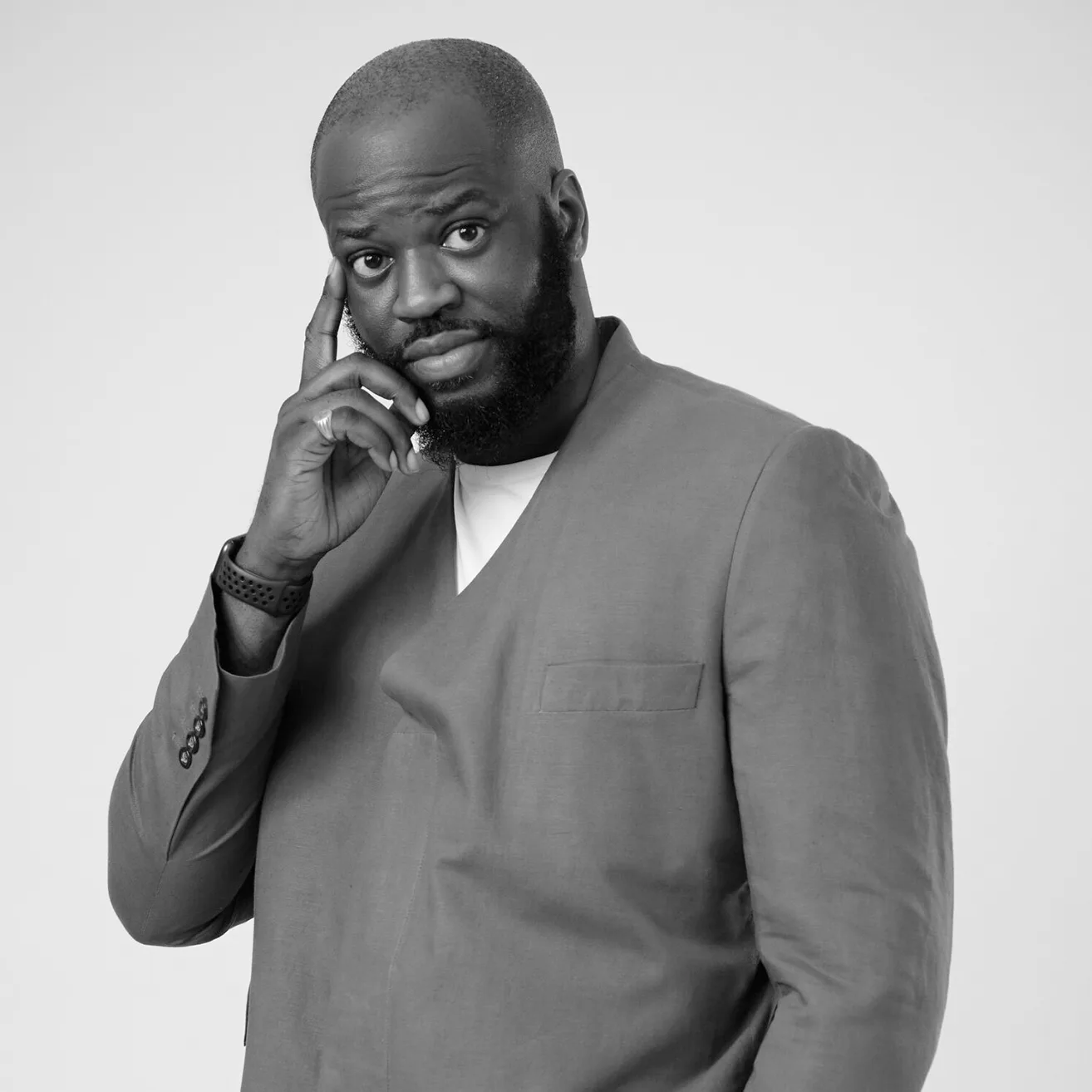
D.A: Hi Lanre, would you mind taking me through your backstory—your personal background, experience, and how it all led up to ArtX for you?
L.M: Yes, I’ll give it in phases. I started out selling mixtapes with my homie in Chicago, five bucks a pop. Then, I got into artist management. I did merch with Burna Boy when I first landed in Lagos. I managed the artists that didn’t work out at the time because we had different ideas of what marketing was, guerrilla target marketing was. Back then, Alaba Market in Nigeria was where it was all happening, but we didn’t fully understand the market and had to learn as we went. From there, I wanted to get properly integrated, so I worked at Trace, learning the grassroots and understanding Nigerian music inside out. Through that experience I had the opportunity to start. Tokini reached out to me about creating the fair, and I’ve been with ART X LIVE! since the inception of ArtX Lagos. I’m actually the one who suggested bringing Ayo on board; I thought she’d be a great addition to the team as well.
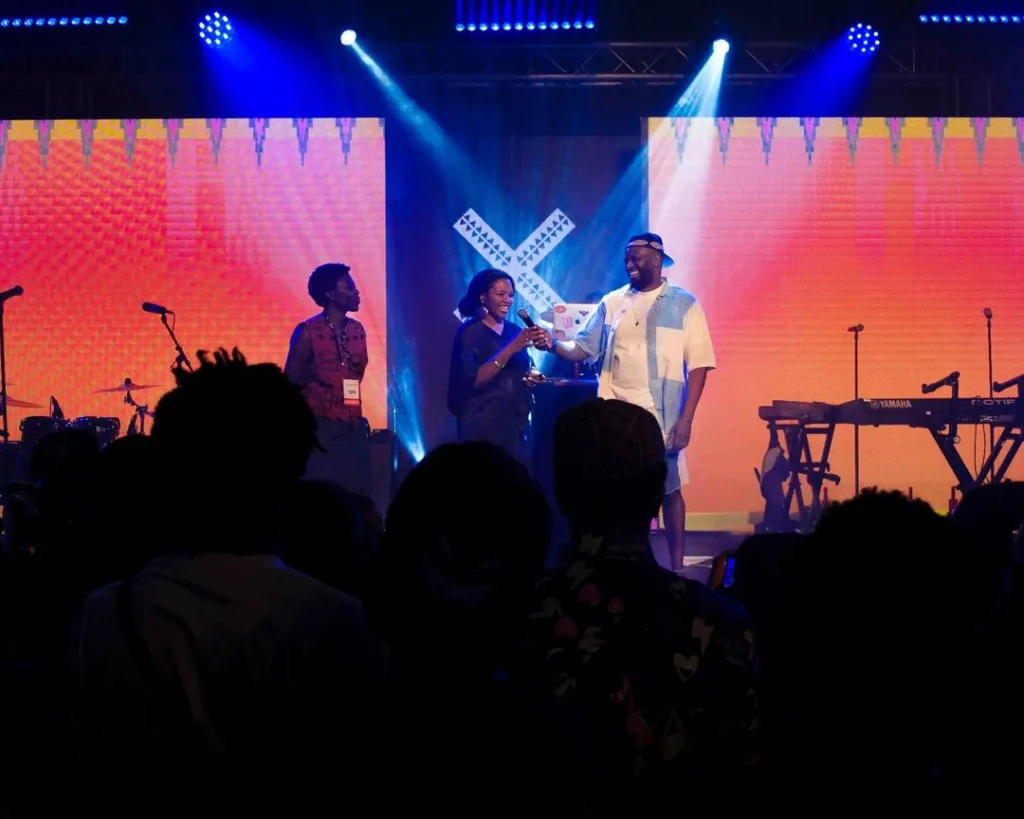
DA: In terms of birthing ART X, what did you think was missing? What did you hope ART X was going to bring?
L.M: ART X LIVE!, you mean, right?
D.A: Yes.
L.M: The whole idea of ART X LIVE! was essentially the intersection between art, culture, and music. Finding a way to bridge that gap in a really organic and professional way. I think a lot of times, you go to shows in Nigeria and the experience is usually trash. From the musical experience to the visual experience – it is usually not the most appealing. So one of the things that we wanted to do with ART X LIVE! is just about the whole experience. From tickets to the stage, to after party. It’s all about the experience – the audience experience, the visual experience, the musical experience, and the space. So from the beginning, that’s what the goal has been. And every year we’ve tried to better ourselves on that ideology.
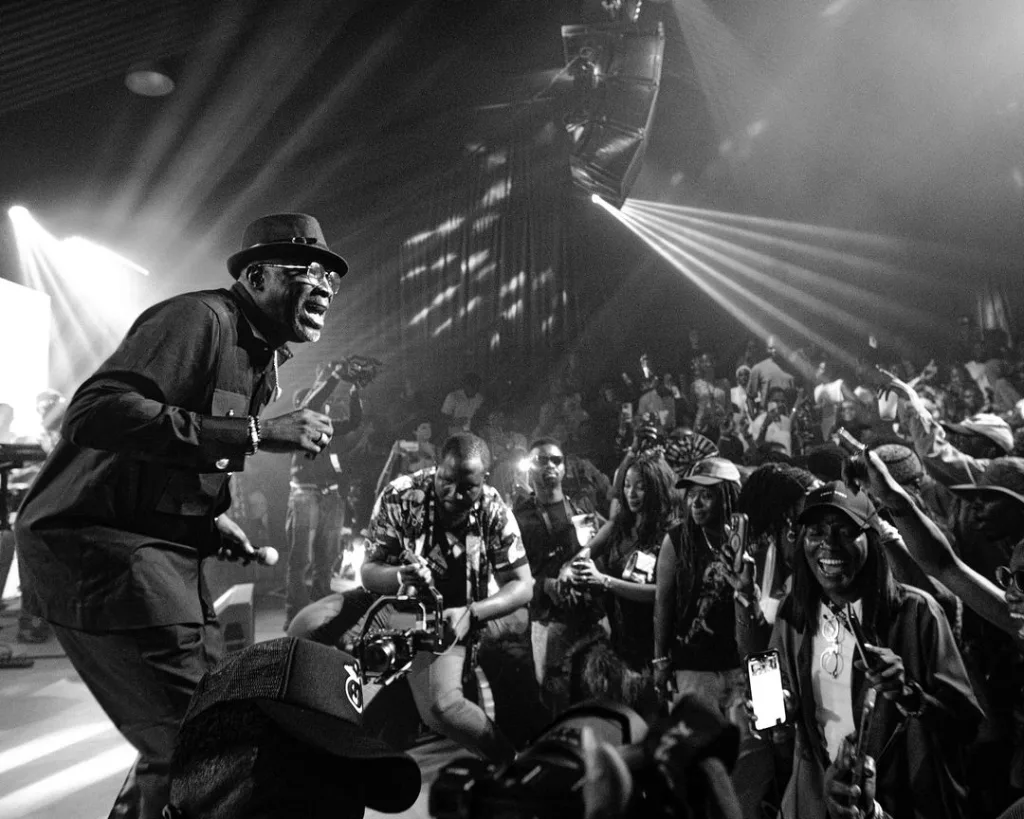
D.A: So this year’s theme is Promised Land. How did you guys get to this point where the theme was Promised Land and how would you say that the theme has influenced the curation of the show itself?
L.M: So I can’t take credit for the Promise Land. I didn’t come up with the theme. The ART X Lagos curator created the Promise Line concept. But how it ties into ART X LIVE! is one of the things that I’ve been kind of paying attention more especially how a lot of our music is being influenced by the past origin. A really good example of that in today’s time is Asake’s ‘Active’ with Adewale Ayuba’s influence on that record. And that has to be one of the biggest record currently for Asake and even with a big hip-hop artist as Travis Scott on that record. I thought at that moment that a lot of people actually don’t even know that Adewale Ayuba is the one being sampled on that record. And I think there’s a lot of records out there that even Burna uses interpolations of older records that are not classic Afro beats or high life music for his records.
I think a lot of new artists or new people don’t know that these are sounds that actually existed before their time. Adewale Ayuba being added to the show this year was us trying to create an experience, one to introduce the new audience to this sound that’s been around for a while – this Fuji sound, which I consider to be our hip hop.
From a storyteller standpoint, how it goes, Fuji is like the hip hop music that we have. And I think being able to kind of connect him with us somebody like an Odunsi, which to me, they’re spirit animals. Odunsi takes a lot of interpretation from Fuji and they fuse it in to the music that they do. So I think the experience was just kind of bringing those two worlds together and try to create a space, a musical experience that both the old and the new could enjoy.
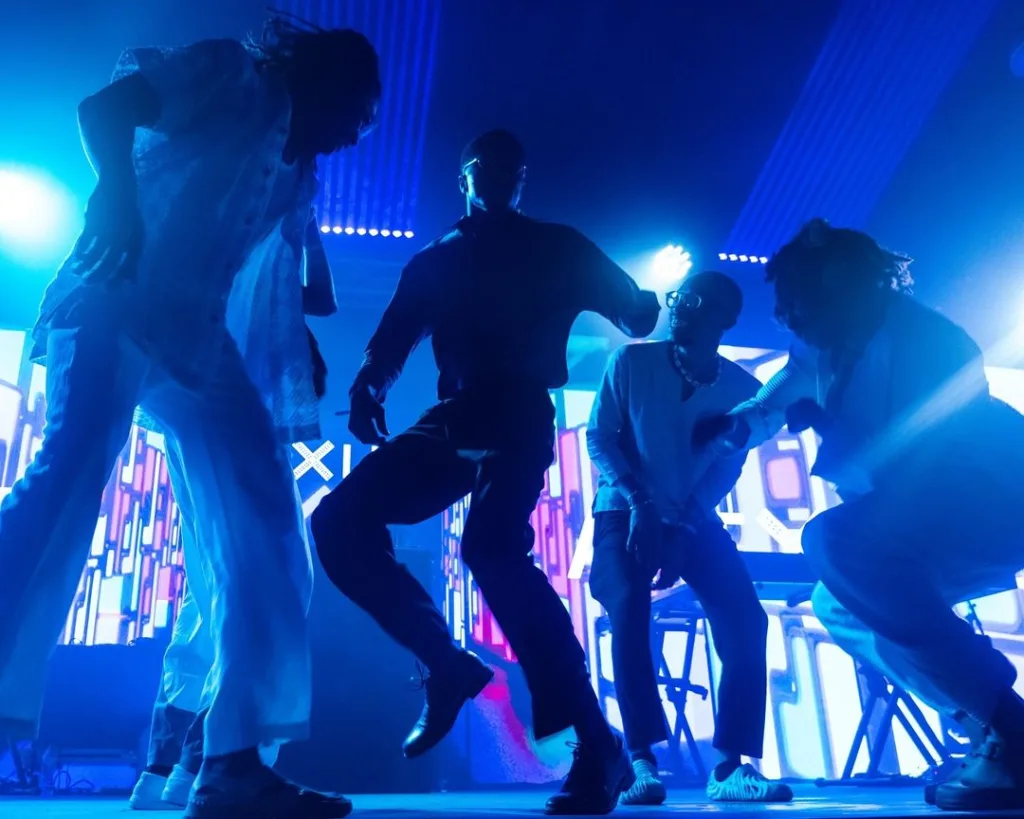
D.A: There’s a lot of buzz about this year being different. What can you say is different this year?
L.M: I mean, the main thing is we are doing Fuji music first. That’s the first thing, right? Traditionally, a lot of the sounds that we’ve done with ART X has been a lot of R&B and Afrofusion. We haven’t done anything really indigenous focused. We haven’t even really done like an Afro beats full focus. We’ve always had artists that are more leaning to “the left.” A lot of times they’re usually like Afrofusion and mostly R&B leaning. So that’s the first thing that’s different. This year. And I also think that this is the first time that we’ve had an actual true Indigenous artist on stage, two of them actually. S-smart is a Fuji artist as well, but he’s a Fuji Fusion artist. He’s really a completely new artist and we’re bringing him on the stage. Normally, he’s not an artist that you typically see on the artist stage. Also Adewale Ayuba is somebody that you probably wouldn’t expect to be at ART X. So those two experiences are completely new.
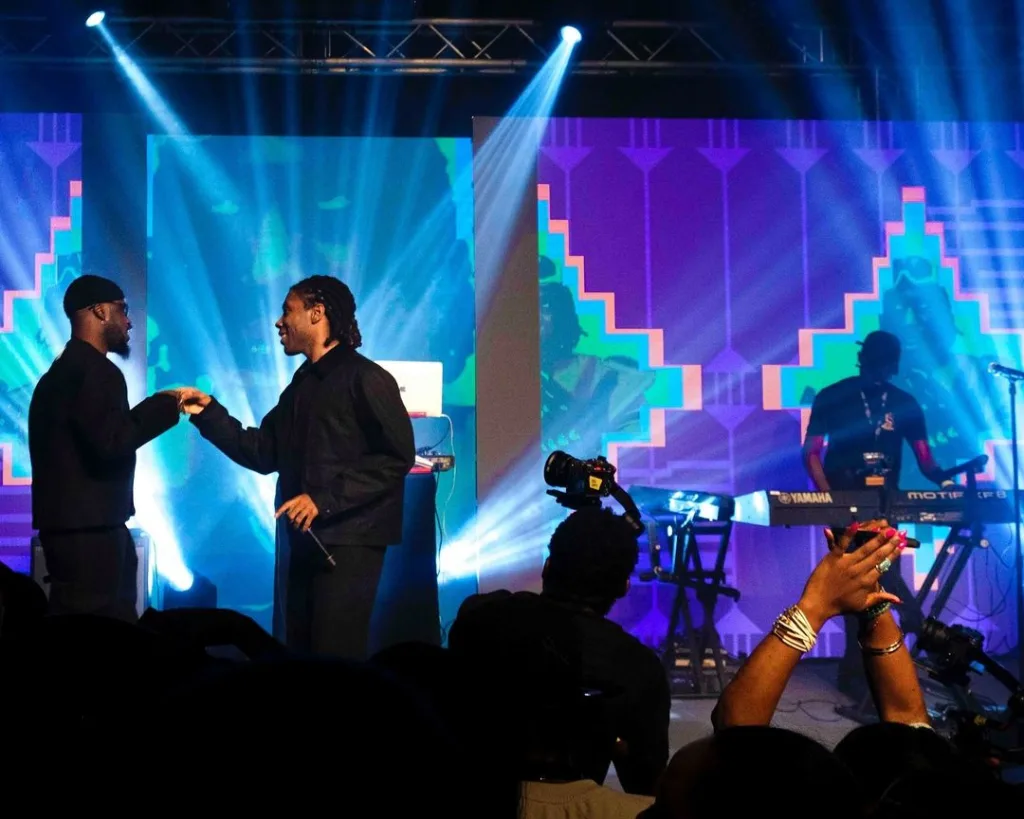
D.A: And at what point did you guys decide this was the direction you guys wanted to take? And why now?
L.M: Yeah, I think the theme actually determined and informed the decision of what we had to do this year. When we started talking about the theme – how do we bring the promised land to life? And our idea about this promised land is that, we’ve always been talking about Africa to the world. I think, we are not starting to get to the new world, but a lot of times what I’m starting to notice is that we’re starting to lose ourselves trying to pander to the West. And we do have a lot of rich music. There’s a lot of high life, fuji and a lot of Apala music. There’s so much music, rich culture of music that we have here that we haven’t fully explored and showcased. And that’s what actually makes us unique to the world. Going to the West and singing in a different tone. But, this is what makes us unique and that’s what the West essentially is even enjoying from us. So I think that kind of is one of the driving factors of the decision.
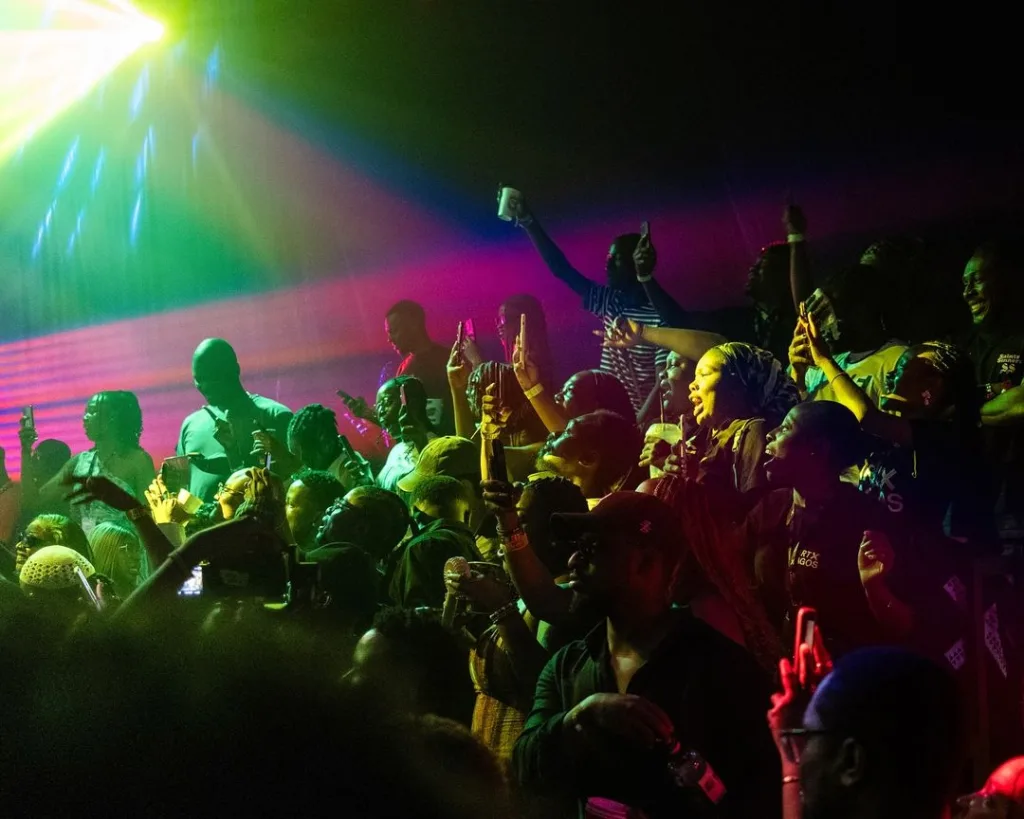
D.A: So hopefully you guys are also able to explore other genres as well.
L.M: 100%, 100%. The only reason we actually didn’t go beyond Fuji this year was just the time needed for us to be able to execute it properly. Ideally, we wanted to open it up to just more than Fuji. That said it was just a timeframe and just the time that we had to try to execute that didn’t give us the space to do it well. And I said, you know what, if we can’t do two or three genres, well, why don’t we just focus on one and just do that one.
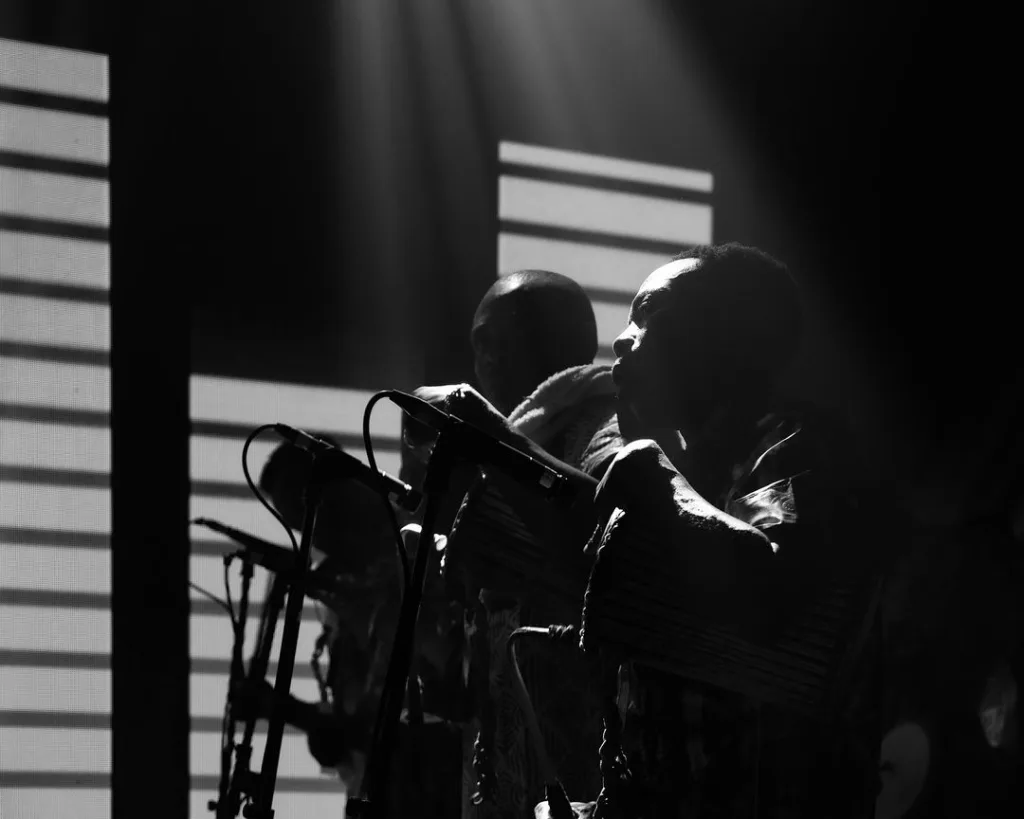
D.A: So for you, what was the most interesting part of the show for you in terms of just curating and putting everything together? And what part of it are you looking forward to seeing come to life?
L.M: Yeah, I think the first thing that I’ll say is probably the experience. First is the transition from Adewale, because he’s very old school. You have to think he’s 60, 60, what, 67 years old? He’s not used to any kind of digital sounds, mostly. Everything he does is live, right? And Odunsi already does a lot of his production in digital form. There was a moment where we were going back and forth on ideas. And Adewale was like, no, we need to do live, we need to do this. But then it was a happy conversation that followed. It was like they got to a place where, we decided, yes we can do this. We can take this part, and we can add that to another. And I thought that was beautiful, because I think that part of this experience, is these two worlds. And a lot of time, the history of our music dies with each generation. Because there’s no cultural exchange. There’s no teaching from the older generation. There’s always a disconnect. And I thought it was so beautiful that they can both share that moment together. Odunsi learnt something and Adewale also learnt from the experience too. And I think it’s probably so far been the highlight of just the experience. And I just hope we can translate that on stage.
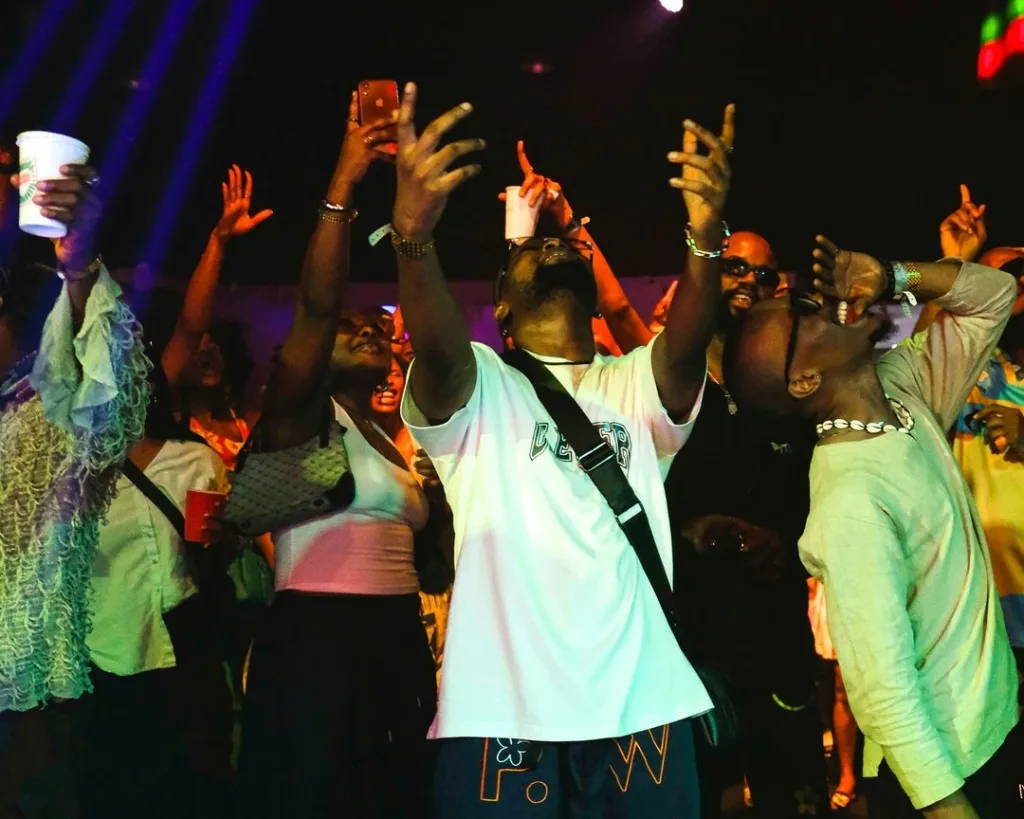
D.A: I’m looking forward to that. I’m a big fan of Fuji myself. I’m also a big fan of Odunsi, so it’ll be really interesting to see. I hope we get to see BTS footage.
L.M: So, you know, the two days there was actually nobody recording. I was actually like, damn, this should have been recorded. There was no recording of that which in hindsight we actually should have had somebody recording that whole process. Well, I mean I wish there was something because that was a moment. The live band was playing, and then there was Odunsi who had this computer that he’s created, this digital refix of ‘Raise the Roof’ and Adewale was just looking at him. It was incredible.
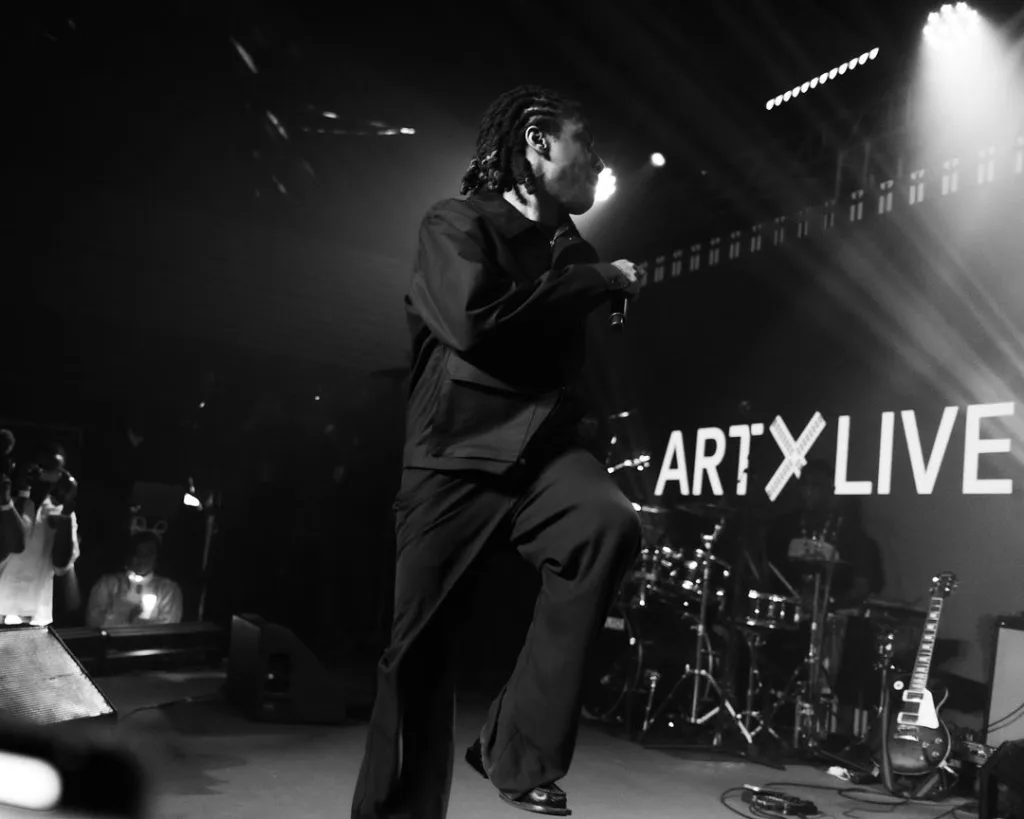
D.C: How do you think the future of ART X LIVE! would shape the global perception of African art and culture?
L.M: I think shaping is a very heavy word. Because that means that we partake in so many parts of the value system. I think we create an experience in Lagos that speaks to Lagos that the world can come and partake in. I don’t know if we’re shaping the global perception of African music across the world. There’re a lot of incredible artists that are doing amazing work. Odunsi, Santi, Adewale himself, because he’s performed globally before. So they’ve done that in the past. To say that from ART X’s perspective, I think that’s a little bit, I don’t think it’s completely on mark. I think we have a space that we play in Lagos and in Nigeria, in Africa, that you come to experience African music in today’s form that we put together that is one of the best musical experience that you can experience in this market.
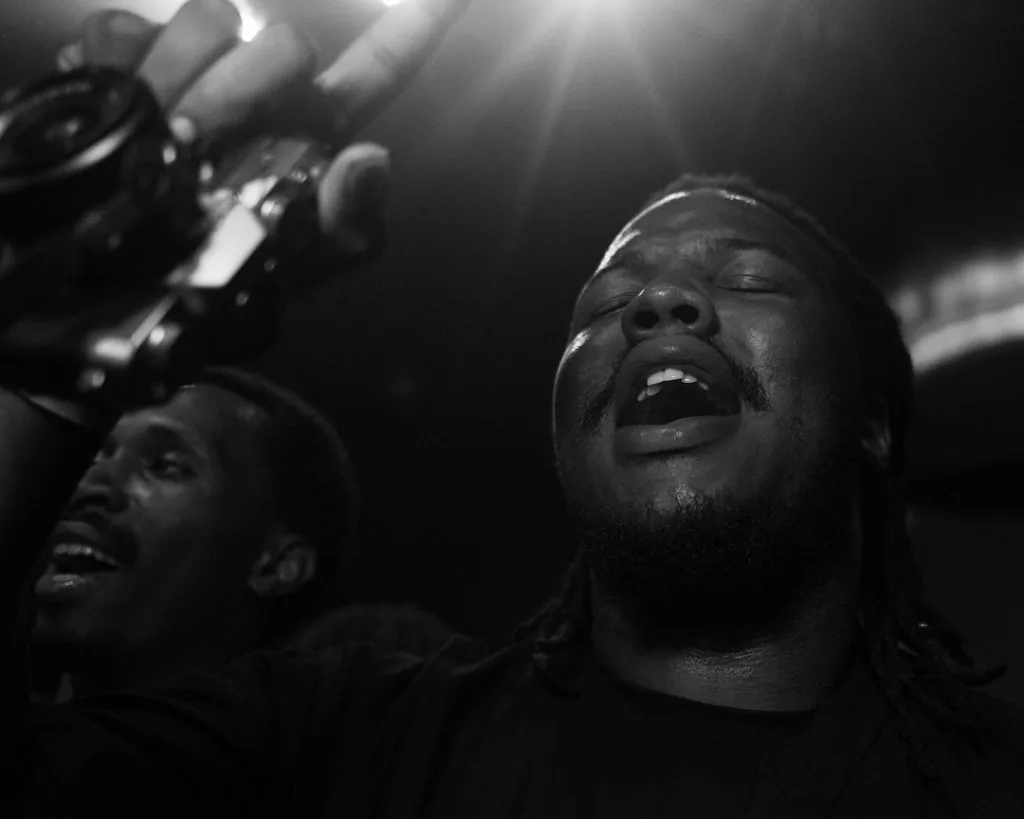
D.C: Are there certain challenges that you faced in the process of curating this year’s event?
L.M: 110%, budget, of course. That’s one. And I also think that, again, it’s two different generations of type of artists. Again, Adewale is like 60, 69 or 67. I can’t recollect the exact age. And Odunsi is in his mid or late 20s. It’s two different worlds apart. So then you have to try to explain and try to make those things kind of flow together. And sometimes that can be difficult, but that’s the way the sweet spot, that’s the beauty of the exchanges.
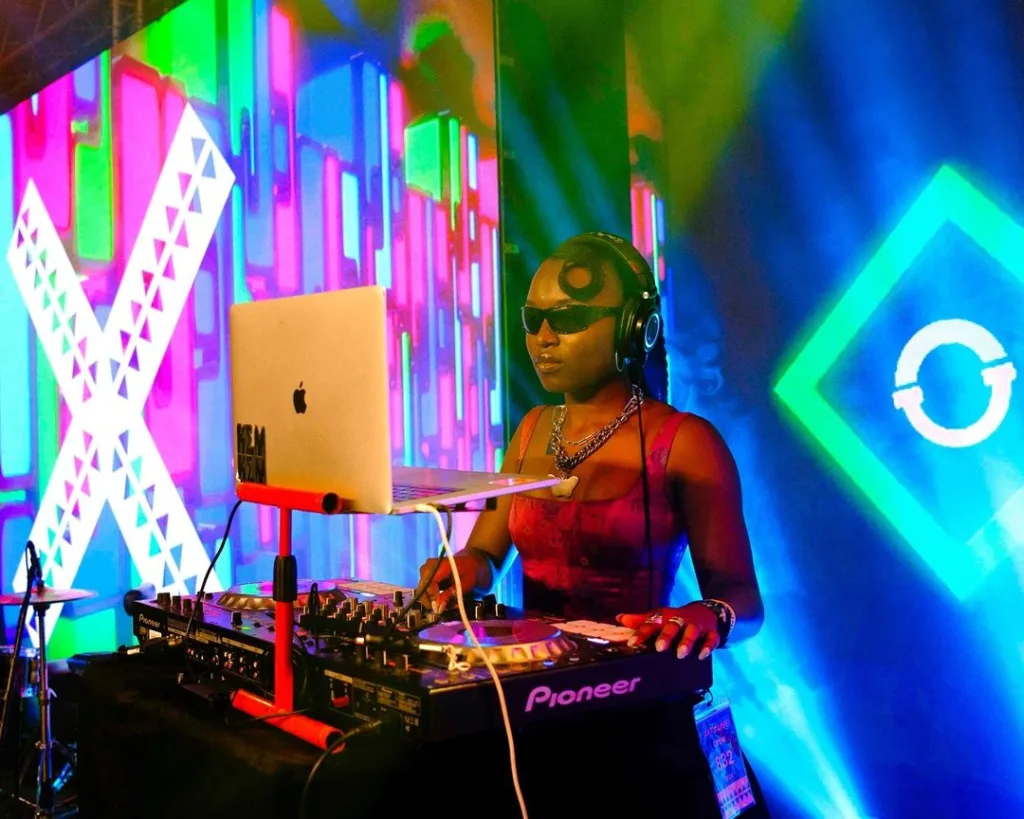
D.C: We’re seeing a very unique blend of Fuji and also Afro fusion that has been around for a while now. Looking forward to more of ART X LIVE!, are there other parts of this musical journey that you’re looking forward to explore?
L.M: Yeah, I think we’d be exploring a little bit more genres. Be more indigenous. And I think just in general, telling our story or showcasing our story and our talent, we’re a little bit more than Afrobeats. We do way more, we’re more dynamic than that as people. I think our culture is more dynamic. I think there’s so much of us that we haven’t experienced yet, that the world hasn’t fully experienced yet. And I think that to me, that’s what I’m looking forward to.
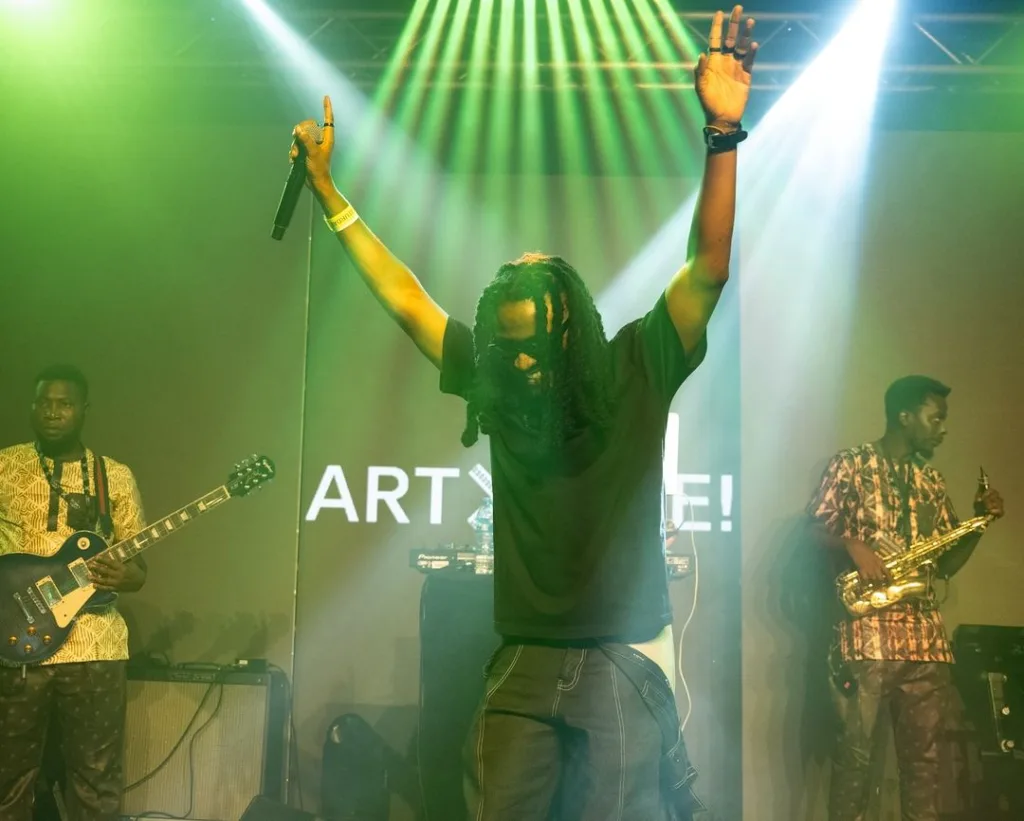
D.C: In the process of researching and developing this year’s ART X LIVE!, has there been anything that actually surprised you about Fuji music or blending it together?
L.M: Has there been any particular thing that actually did surprise me? Man… Wow, that’s such a good one because you stopped me there because I don’t actually have an answer for that one. What surprised me? I don’t think anything particularly, probably like crazily surprised me. You just picked some of the stuff on the inklings that already had initially when I reached out to Adewale Ayuba. I didn’t know because I think about old traditional Yoruba people as very, very rigid in a way. There’s a certain way to have to do certain things. And the moment that him and Odunsi sat together, I felt that they were two of the same people in two different generations. And that surprised me because of his openness to actually communicate what he wants to do and how he wanted to express himself. I think that surprised me a little bit. I think if there’s anything that surprised me, it would be that, I guess.
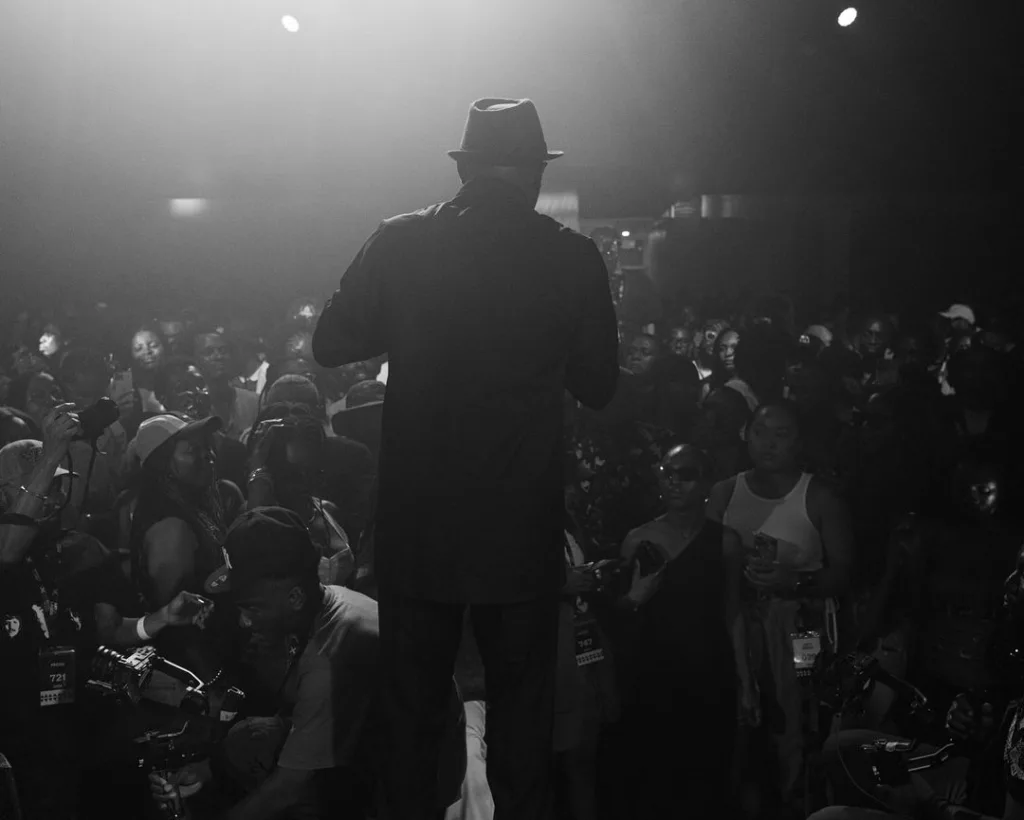
D.C: We know Fuji has quite a lot of storytelling involved in it, quite more than a lot of other genres. Like the old sound, they have a lot of storytelling. Are we going to witness more of that at ART X LIVE! this year?
L.M: I mean, by default, you’re going to witness that. With him (Adewale Ayuba) performing. Lets also not forget about Santi. He’s a great storyteller, and he’s told different stories over the course of his career. I think that we definitely will witness that in a way. Again – and I will repeat this – I think Fuji to me is what is, is hip hop is out there. I think it has all the same elements that gives that hip-hop elements – from fashion, style, cadence, the dance, everything. So I think that’s to me, there’s definitely going to be some stories from across the board.
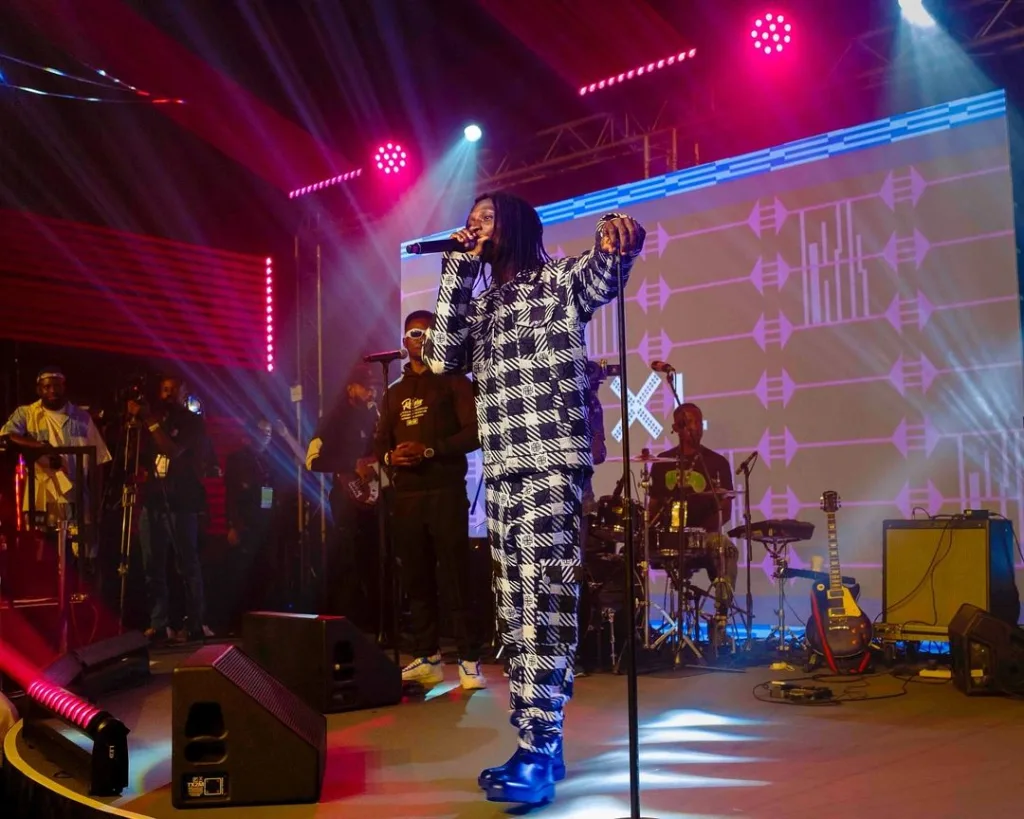
D.C: Finally, one of the things we know about ART X LIVE! is their ability to create a musical line-up that is very unique from a lot of concerts you would normally attend. And it’s such that it stays true to the artistic expression of the artist while also creating that cultural feel. I want to ask about S-smart. How was he selected as part of the line-up?
L.M: So what actually drove that conversation is what we were talking about. What would Fuji sound like today? It was a new artist that came out and said he wanted to do Fuji. What potentially can I sound like today? And I heard a record with him. I was kind of buzzing underground with him, and, and that record is what made me say, ‘Hey, let’s check out this guy.’ And the record also featured Santi. And I also knew that he’s been working on some production with some people that I knew. And the record was called Highness. Right. And that record is what made me say, man, let’s try this guy out. He’s new. And it’s always good to just showcase an artist that nobody might know about yet. Yeah. Over the years, we’ve done And we’ve done that. Buju was the last stage we performed. Winnie was the first stage we performed. So over the years, we’ve done that, just artists that we just kind of like and just kind of put on and put on the stage.


